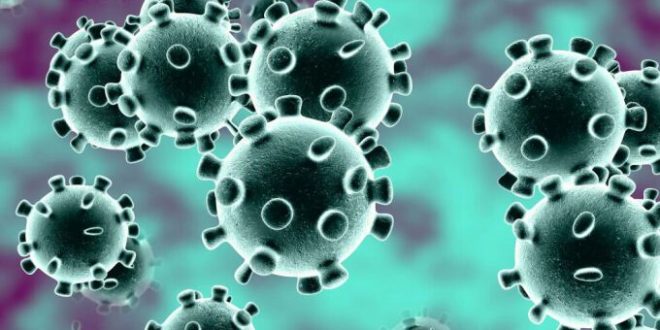According to the one of the website report in Bangkok, a Chinese woman infected with the new coronavirus showed a dramatic improvement after she was treated with a cocktail of anti-virals used to treat flu and HIV, Thailand’s health ministry. The 71-year-old patient tested negative for the virus 48 hours after Thai doctors administered the combination, doctor Kriengsak Attipornwanich said during the ministry’s daily press briefing. “The lab result of positive on the coronavirus turned negative in 48 hours,” Kriengsak said. “From being exhausted before, she could sit up in bed 12 hours later.” The doctors combined the anti-flu drug oseltamivir with lopinavir and ritonavir, anti-virals used to treat HIV, Kriengsak said, adding the ministry was awaiting research results to prove the findings.
The battle against the latest coronavirus (COVID-19) outbreak is being carried out in China with new healthcare technologies in place. According to GlobalData, a health market research firm, this new technology includes artificial intelligence, analytics tools and drones for distribution to hospitals. Emerging technologies proving value in Chinese Coronavirus fight.
More than 3,000 people have died globally from COVID-19, as the illness is officially known, while more than 92,000 infections have been confirmed in dozens of countries, according to the World Health Organization.

How to be safe from coronavirus
According to WHO following are few tips to be safe from coronavirus:
Wash your hands frequently
Regularly and thoroughly clean your hands with an alcohol-based hand rub or wash them with soap and water.
Why? Washing your hands with soap and water or using alcohol-based hand rub kills viruses that may be on your hands.
Maintain social distancing
Maintain at least 1 metre (3 feet) distance between yourself and anyone who is coughing or sneezing.
Why? When someone coughs or sneezes they spray small liquid droplets from their nose or mouth which may contain virus. If you are too close, you can breathe in the droplets, including the COVID-19 virus if the person coughing has the disease.
Avoid touching eyes, nose and mouth
Why? Hands touch many surfaces and can pick up viruses. Once contaminated, hands can transfer the virus to your eyes, nose or mouth. From there, the virus can enter your body and can make you sick.
Practice respiratory hygiene
Make sure you, and the people around you, follow good respiratory hygiene. This means covering your mouth and nose with your bent elbow or tissue when you cough or sneeze. Then dispose of the used tissue immediately.
Why? Droplets spread virus. By following good respiratory hygiene you protect the people around you from viruses such as cold, flu and COVID-19.
If you have fever, cough and difficulty breathing, seek medical care early
Stay home if you feel unwell. If you have a fever, cough and difficulty breathing, seek medical attention and call in advance. Follow the directions of your local health authority.
Why? National and local authorities will have the most up to date information on the situation in your area. Calling in advance will allow your health care provider to quickly direct you to the right health facility. This will also protect you and help prevent spread of viruses and other infections
Stay informed and follow advice given by your healthcare provider
Stay informed on the latest developments about COVID-19. Follow advice given by your healthcare provider, your national and local public health authority or your employer on how to protect yourself and others from COVID-19.
Why? National and local authorities will have the most up to date information on whether COVID-19 is spreading in your area. They are best placed to advise on what people in your area should be doing to protect themselves.
According to the ‘American Red Cross’ limit the spread of germs and prevent infection.
Following are common-sense steps we can all take to prevent the spread of any respiratory virus:
- Get your flu vaccine.
- Avoid close contact with people who are sick.
- Stay home when you are sick.
- Cover your mouth and nose with a tissue when coughing or sneezing. It may prevent those around you from getting sick.
- Wash your hands often with soap and water for at least 20 seconds, especially after going to the bathroom; before eating; and after blowing your nose, coughing or sneezing. If soap and water are not readily available, use an alcohol-based hand sanitizer with at least 60% alcohol. Always wash hands with soap and water if hands are visibly dirty.
- Avoid touching your eyes, nose or mouth.
- Practice other good health habits. Get plenty of sleep, be physically active, manage your stress, drink plenty of fluids and eat nutritious food.
- Disinfect doorknobs, switches, handles, computers, telephones, bedside tables, bathroom sinks, toilets, counters, toys and other surfaces that are commonly touched around the home or workplace.
- Follow the CDC’s recommendations for using a facemask.
- CDC does not recommend that people who are healthy wear a facemask to protect themselves from respiratory diseases, including COVID-19.
- Facemasks should be used by people who are ill to help prevent the spread of the disease to others.
- The use of facemasks is also crucial for health workers and people who are taking care of someone in close settings (at home or in a health care facility).
Following are the list of countries that have so far confirmed cases of the new coronavirus:
Afghanistan – 1
Algeria – 5
Andorra – 1
Argentina – 1
Armenia – 1
Australia – 33
Austria – 24
Bahrain – 49
Belgium – 8
Brazil – 2
Cambodia – 1
Canada – 27
China – 80,174
Croatia – 9
Czech Republic – 3
Denmark – 6
Coronavirus
Dominican Republic – 1
Egypt – 2
Estonia – 1
Finland – 6
France – 212
Georgia – 3
Germany – 240
Greece – 7
Iceland – 9
India – 6
Indonesia – 2
Iran – 2,336
Iraq – 31
Israel – 12
Italy – 2,502
Japan – 271
Jordan – 1
Kuwait – 56
Lebanon – 13
Lithuania – 1
Luxembourg – 1
Malaysia – 50
Mexico – 5
Morocco – 1
Nepal – 1
The Netherlands – 23
New Zealand – 1
Nigeria – 1
North Macedonia – 1
Norway – 32
Oman – 12
Pakistan – 5
The Philippines – 3
Poland – 1
Portugal – 2
Qatar – 8
Romania – 3
Russia – 5
Saudi Arabia – 1
Senegal – 1
Singapore – 110
South Korea – 5,186
Spain – 149
Sri Lanka – 1
Coronavirus: Immunity
Sweden – 24
Switzerland – 47
Taiwan – 41
Thailand – 43
Tunisia – 1
United Arab Emirates – 21
United Kingdom – 51
United States – 106
Ukraine – 1
Vietnam – 16
The Positive news is that the number of new cases in China appears to be slowing and according to the WHO, global understanding of the virus is increasing and more governments are announcing concrete plans to deal with the outbreak.
 Digital Tech Byte Latest Technology News
Digital Tech Byte Latest Technology News





